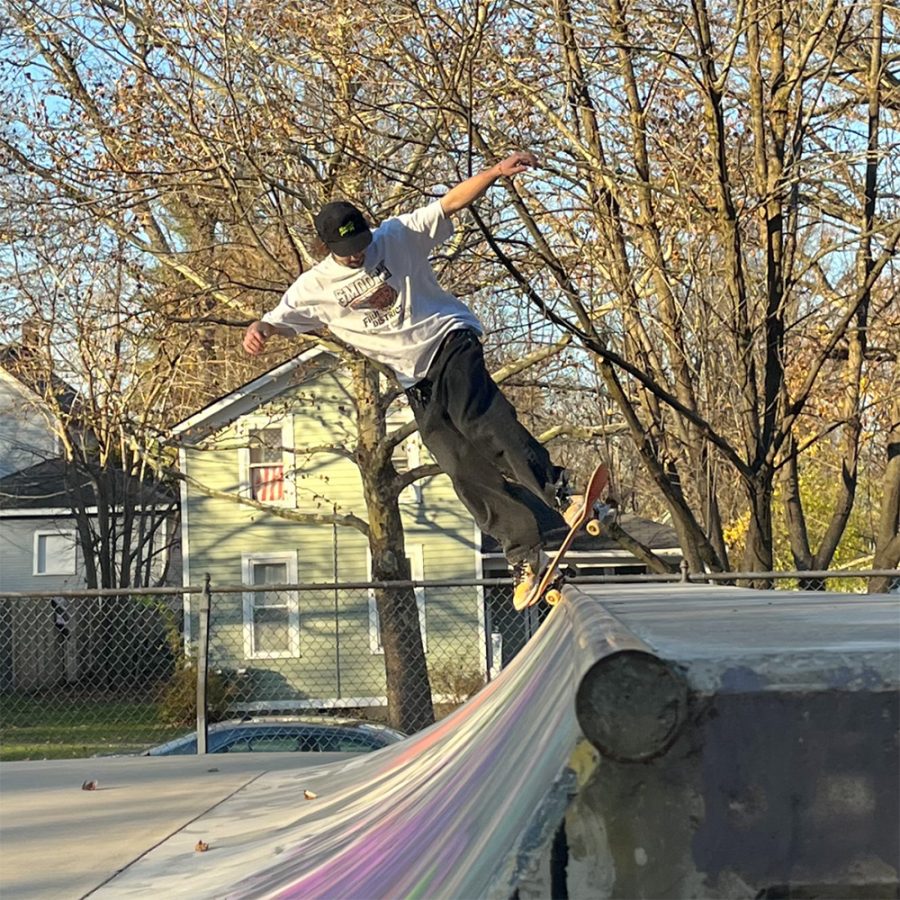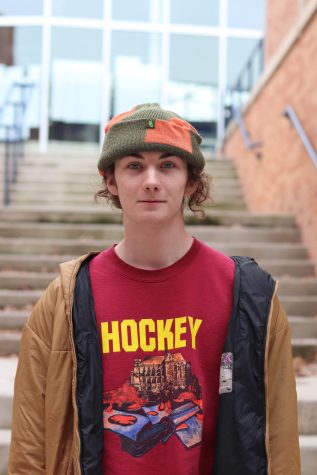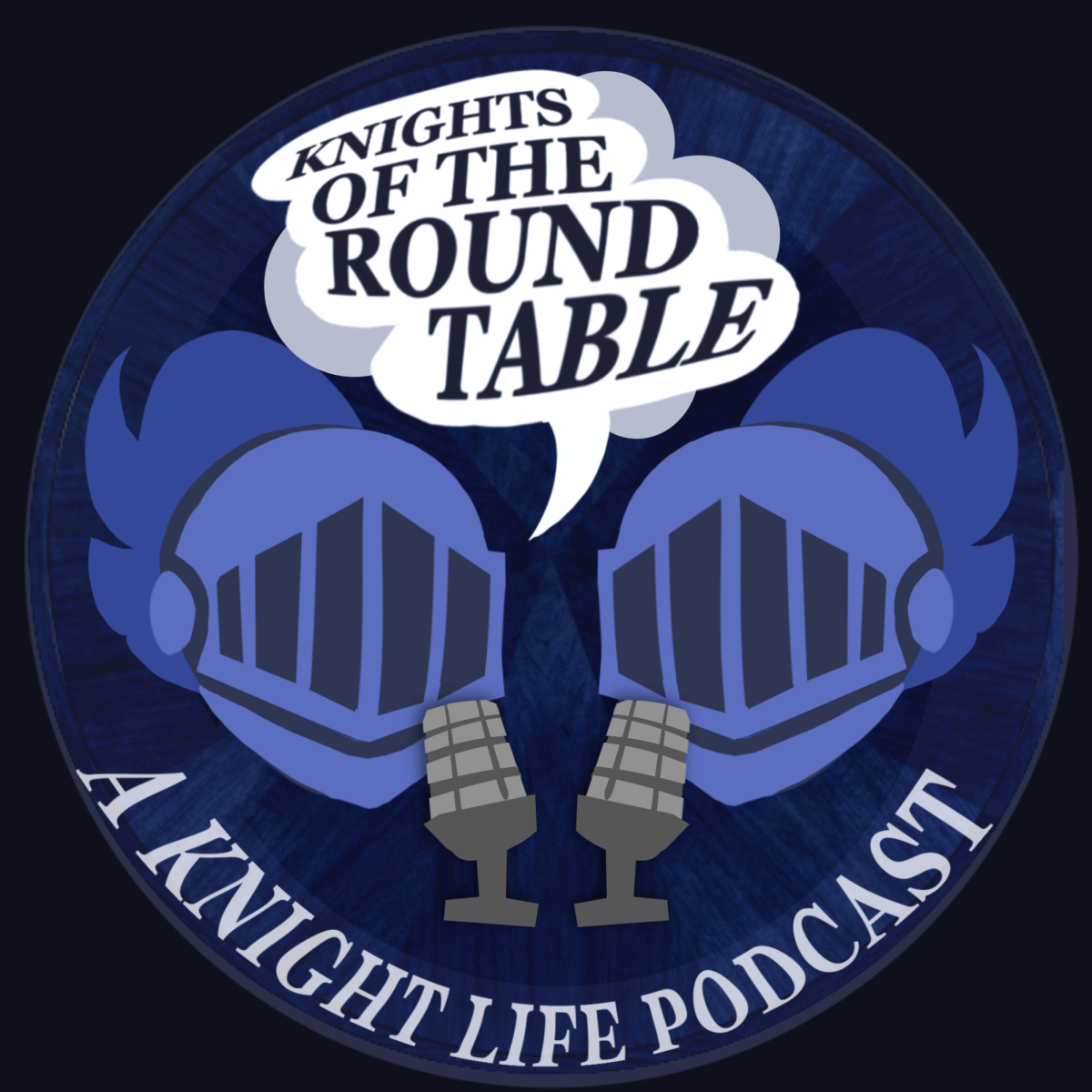Local skateboarder speaks on conquering fear
December 23, 2022
Imagine you’ve been digging up the courage to ask your friend on a date. You know what you want, you’re just afraid of being vulnerable and possibly getting your feelings hurt.
Say you muster up the courage and ask, at this moment you face three responses — they might look at you with disgust, smile big and ask for a time and place or hit you with a “no thanks.”
Facing rejection can be a rough time, but the upside is you have the chance to learn from the experience.
Skateboarding is a lot like asking someone on a date and facing rejection: a constant battle with yourself over what might happen – especially when you’re learning something new. Moving past this fear is the kind of courage you need when mastering a trick on the skateboard.
“Why didn’t I try that trick 10 years ago?” said 35 year old skateboarder Chris Collins to one of the local riders while he stood patiently on the quarter pipe at Davis Street Park, awaiting his next turn.
Chris has been skating since 1998, and over time, he’s slowly learned to conquer that battle inside the head — to escape fear and achieve flow state.
Unfortunately the majority of people fail to overcome this battle when their trick doesn’t go as planned and they fall.
“A lot of people quit because they’re just not built for it. It’s that simple. My brother quit after a couple years. One bad slam he decided he’d had enough,” said Collins.
This is why skateboarding can be such a struggle. If you aren’t willing to be patient and stay dedicated to the learning process by taking falls, you won’t be getting anything out of your sessions, and you’ll slowly grow to cringe at the thought of going out to practice flatground tricks.
Davis St. can get very busy on nice days in the afternoon. Since Collins lives in the Vine neighborhood, where the park is located, he’s able to get to the park in the morning to get some laps in by himself.
“Well I live in the neighborhood, so I try to get up here before a crowd shows up. It’s usually pretty quiet here in the morning,” said Collins.
However when it’s too busy for Chris or he gets bored of the five features at the park, he takes to the streets to find or even make his own spots.
“Google Earth’s like magic man, just look for industrial buildings and there’s bound to be something there for you,” said Collins.
Once you’ve been skating for as long as Collins, it becomes hard not to think about doing new tricks because it’s quite literally ingrained into your brain.
“I’m always watching trick tip videos at night. When I’m laying in bed, I envision myself doing tricks until I fall asleep. It’s just a force of habit I guess,” said Collins.
According to Nemours Children’s Health, when you practice a physical skill like playing an instrument, reading or typing on the keyboard, over time your brain will start to activate neurons in specific areas of your brain, creating pathways from your central nervous system to the muscles you move (muscle memory). This way you won’t have to make a conscious effort and the mind will relax so the body can take over.
Noah Emmer at age 22 has been skating for 4 years and is studying Behavioral Sciences at Western Michigan University.
“Something you have to come to terms with is your body. Some things are gonna feel more comfortable than others, so just go out there and focus on having fun, not progress,” said Emmer.
Focusing on fun rather than progress plays a big role in getting more confident on your skateboard. If you’re only focused on getting better, skating will become less fun and you’ll go out less. This leads to comparing yourself with others, stealing the joy of the ride right out from underneath your feet.
Each person presented similar ideologies – to fall down, get back up and do it over again until you get it right because what’s a few scrapes and bruises compared to the feeling of learning something new?












